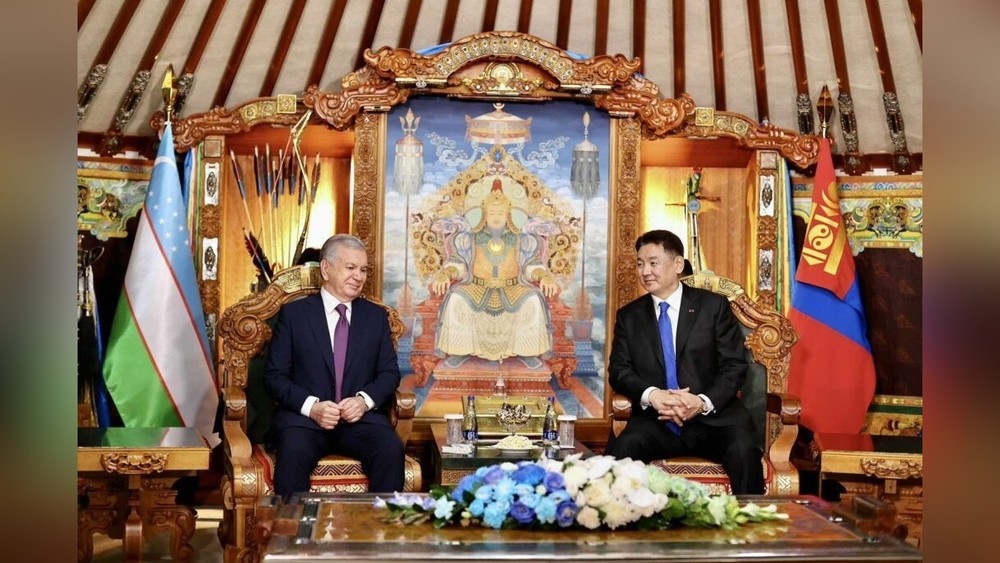Ulan Bator's shift towards Central Asia
Meetings and projects for new cooperation initiatives between Mongolia's political leadership and Central Asian heads of state and government are multiplying. In a network of relations that not only has political and commercial significance but also represents a form of historical and commercial reunification.
Ulan Bator (AsiaNews) - For two years now, Mongolia has been deepening its political, diplomatic and commercial relations with the countries of Central Asia, not only as a strategic orientation but as a form of historical and cultural reunification.
The very name “Central Asia”, after all, refers to the entire Asian territory where no waterway reaches the ocean, across the plateau between the Himalayas and the deserts and steppes bounded by the northernmost mountain ranges, to the westernmost plateau of the Pamir, and Mongolia is the central hub of this crossroads of peoples who were once semi-nomadic and scattered across these immense territories.
The “Mongols” were just one of many tribes, and historical events have attributed this title to the union of many different ethnic groups, from the Turanian Tatars to the Chinese. After the end of the Soviet Union, of which Mongolia was one of many “additional republics” outside its borders, Ulan Bator restored its sovereignty, with the need to establish a wide-ranging foreign policy in a global context of constant change.
In 1994, a specific National Security Concept was approved, which was then revised in 2010-2011 to include foreign policy in general, seeking to maintain an autonomous and well-balanced position on the international stage.
As Mongolian scholar and diplomat Tomorčuluun Guudaja comments in Central Asia, these new guidelines are based on four fundamental principles: “de-Sovietisation, de-ideologisation, democratisation and decentralisation”, reducing the rigid control of all external relations from the centre.
A major internal debate has therefore developed on Mongolia's geopolitical identity, with two schools of thought: one that considers the country part of Central Asia, linked to the legacy of the steppes, and another that considers it part of North-Central Asia, to be oriented primarily towards more dynamic and modern economies, such as those of North Korea and Japan.
Since 2011, the term “third neighbour” has been used to refer to countries beyond the two cumbersome superpowers of Russia and China, which border Mongolia. The “third” includes the US, Japan, the European Union, India, South Korea and Turkey, along with other Asian countries, the UN and its agencies, and the G7 group. Mongolia therefore remains a bridge between regions, ideologies and cultures across Eurasia, and in this context, the intensification of mutual relations with Central Asia takes on a significance that sums up all Mongolia's needs in relation to the outside world.
In July 2023, the President of Kyrgyzstan, Sadyr Žaparov, visited Ulan Bator, followed by the President of Kazakhstan, Kasym-Žomart Tokaev, in October 2024, and most recently by Uzbekistan's Šavkat Mirziyoyev.
On the Mongolian side, President Khürelsükh Ykhnaa attended the Shanghai Cooperation Organisation summit in Astana in July 2024, before visiting Ashgabat, the capital of Turkmenistan, in October. Many commentators openly speak of a “turn towards Central Asia”, with political and cultural motivations prevailing over primarily economic ones.
This new direction offers Mongolia numerous advantages, expanding its range of political alliances, diversifying its trade routes and business partners, and above all rediscovering the common identity of the peoples of the Asian steppes.
The development of infrastructure will be crucial to making land trade routes truly effective, such as the one identified during Mirziyoyev's visit to connect Uzbekistan and Mongolia via China and Kyrgyzstan. The first shipment on this new route arrived in just eight days, demonstrating how easily the world can be connected via the ancient routes of the Mongols and peoples far from the sea.
06/02/2023 11:54
19/12/2022 09:50
25/07/2022 10:03







.png)










